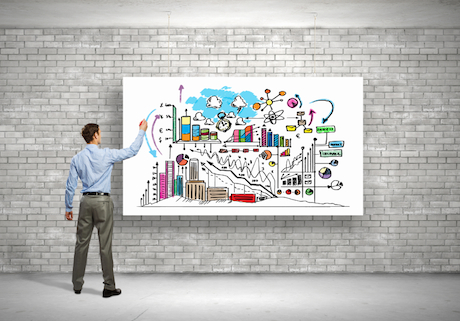
The monitoring of social media is key to avoid major problems
At the end of the day we listen and hear many things. We hear noise, which does not interest us much, but we listen to what concerns us, what matters to us.
If we go down the street and hear our name or something related to us, we stay tuned to see what it is: if they speak well of us or if not. Whether we want it or not, we try to find out if they criticize us and why, who criticizes us, where, and, if we deem it necessary, intervene to clarify things, whether someone known or not, and, if appropriate, apologize.
 But obviously, we can know this if we listen, if we are attentive.
But obviously, we can know this if we listen, if we are attentive.
The world is the same. The social environment is the street on which we are walking and in which conversations of all kinds are heard: who has won the Betis match, whether we liked a restaurant or not, if they have given us a good service in that hotel we went…
And this is where we have to be attentive to where we are mentioned, and we have to open our eyes wide to listen.
There are many Community Managers who are not interested in knowing what the results of their interaction are, when this is a key facet of their work. They only focus on sending messages to social networks without worrying about collecting feedback from their community, from their audience, when this is the Community Manager’s raison d’être: create community, make it dynamic and grow the brand image together with it.
For this it is necessary, even before speaking, to listen, to open our eyes and to locate each and every one of the conversations that take place in any part of the web of which we are an involved party, whether protagonist or secondary character.
The eyes are our ears, and the monitoring tools, our ears. Thanks to them, we can find out if the conversations where we are present are relevant or not, and, therefore, decide whether to act in a certain way or another.
The monitoring is key to avoid major problems caused by poor management of our social profiles, or a failure committed by the brand, we must never forget that we are human persons who are behind a product or a brand, and that, the bad thing is not committing that failure, if not, not knowing how to correct it quickly and effectively.
Without monitoring, we can not know where criticism can come from, we can not know if our strategy is working or not, since we do not know what others think or what aspects need to be improved, in a word, to have and take advantage of that feedback. We talked before.
But how do we do it? Being aware of all existing platforms on the web is impossible, but we have a good ally, the monitoring tools that help us know where we are. There are to find us in social networks, forums, blogs and many other places, and can be both free and paid.
Among my favorites to monitor Twitter is Monitter, a free and web based tool that has a very simple interface, but at the same time very effective, which allows keeping up to five terms under surveillance. Two others, although they can be used for free, have a pro version, they are Hootsuite and Tweeckdeck, which, in addition to allowing messages to be programmed for this social network, makes it possible to create independent tabs for several terms, whether they are hashtags or users, to have them safe.
There are a thousand and one monitoring tools , as I say, but this post is not about them, it goes from the need to monitor to avoid any crisis of the brand we represent.
Understood this we can launch an important question, do we care to know who really criticize us or think of our company or brand? If so, then why do not we monitor?
Leave a reply